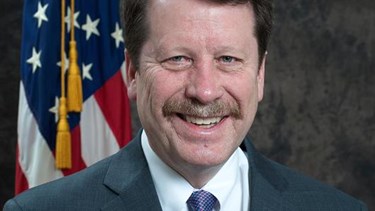FDA Nominee Califf Wants To Extend Pharma Postmarket Surveillance System To Devices
By Jof Enriquez,
Follow me on Twitter @jofenriq

Presumptive Food and Drug Administration (FDA) commissioner Dr. Robert Califf told legislators that the agency is looking to pattern a new postmarket surveillance system for medical devices after an existing monitoring system for drugs.
In a recent hearing of the Senate Health, Education, Labor and Pensions Committee, Califf testified that the FDA’s Sentinel system is “a model in drugs” with over 170 million Americans’ claims data. “So when there is a problem with a drug, we can work on it in real time,” he said, according to the Star Tribune. “We need the same system on the device side. We have plans to do that.”
The Sentinel program uses electronic medical data to evaluate the safety of drugs used in actual clinical care, and FDA plans to extend this utility to medical devices. Califf said that FDA would need to work with Congress to secure funding for the expansion of the system.
In the hearing, Califf also acknowledged that patient and consumer feedback will become a priority for the FDA in determining device safety and technology development, and that increased connectivity would allow the agency to reach and engage more patients and caregivers.
“We must also take advantage of the astounding opportunity afforded by the fact that the majority of Americans have an electronic health record and smart phones,” he explained in prepared remarks. “The groundbreaking Sentinel system demonstrates the power of evidence to inform FDA’s decision making and act quickly on safety issues and we have a similar plan for medical device surveillance. I am committed to the development of a national system for surveillance and evidence generation that will improve patient safety and provide a much more efficient way to understand the benefits and risks of medical products when used in practice.”
FDA previously announced plans of creating an Integrated National Postmarket Surveillance System, one component of which is a unique device identification (UDI) system that incorporates previously untapped data from electronic health information systems (EHIs), clinical information systems, claims data sources and registries, and other data sources.
Califf mentioned several times during the hearing the need for a better system to monitor medical devices once they hit the market. Likewise, he also touched on plans for a new pathway to regulate drug/device combination products, and new ways to ensure all clinical research gets published, according to a RAPS article.
The two-hour Senate committee hearing was generally cordial, but Califf was questioned by Sen. Elizabeth Warren (D-Mass.) on whether or not the agency will continue its fast pace of new product approvals under his leadership, alluding to his allegedly close ties with the pharmaceutical and medical device industries.
“Your relationships also raise concerns about your motivations,” said Warren, according to BioPharma Dive. “Do you agree with arguments to lower standards for FDA approval of drugs and devices?” to which Califf reportedly retorted, “I have never been a proponent of lowering standards for anything. I have been in favor of raising standards. In no case would I argue to lower the standard. I think I have been staunch in that regard.”
Notwithstanding some criticism on his nomination by President Obama, Califf, currently the deputy commissioner of the FDA, appears to have broad support and is expected to be eventually confirmed as commissioner, according to the New York Times. A confirmation vote is yet to be scheduled.
